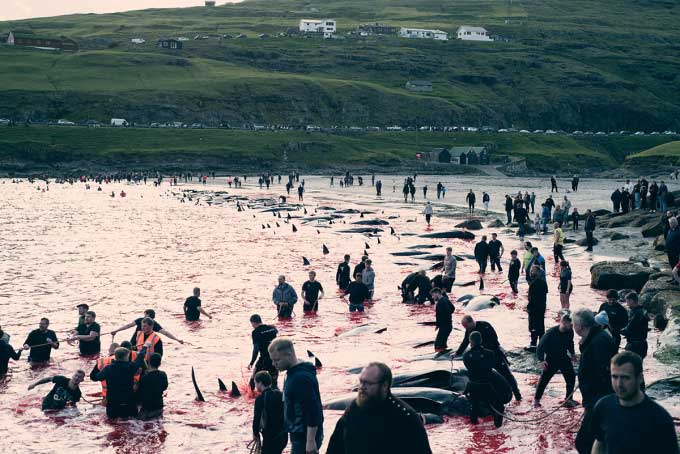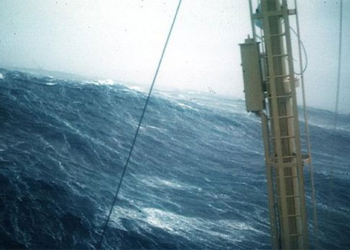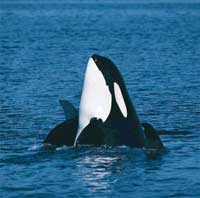Local authorities of the Faroe Islands, an autonomous territory of Denmark, reported on June 15 that over 500 dolphins have been killed since May.
According to “grindadrap”, a tradition of the Faroese people, hunters surround pilot whales and dolphins with a fleet of fishing boats forming a wide semicircle, then drive them into a shallow bay causing them to strand. Fishermen on the shore will then kill them with knives.

Dolphin hunters in Leynar, Faroe Islands on June 14. (Photo: AFP/Sea Shepherd).
Every summer, images of the bloody hunt draw worldwide attention and outrage animal rights advocates, AFP reported on June 15. They argue that this practice is barbaric.
“Yesterday there were two rounds of grindadrap, one involving 266 animals and the other 180, according to preliminary reports”, a spokesperson for the Faroese government said. Including the two recent rounds, there have been a total of five grindadrap events this hunting season, resulting in a significant number of pilot whales (a member of the dolphin family) being killed.
The environmental NGO Sea Shepherd previously disrupted the hunt in 2014 with its vessel. Sea Shepherd also criticized the allowance for the Danish navy to prevent environmentalists from interfering with the hunt.
However, the hunt remains widely supported in the Faroe Islands. Supporters argue that dolphins have sustained the local population for centuries. They contend that foreign media and NGOs do not respect local culture and traditions.
Each year, the Faroe Islands typically kill about 800 pilot whales for their blubber and meat. In 2022, authorities limited the number of Atlantic white-sided dolphins that can be killed each year to 500, after an unusually large culling event involving over 1,400 dolphins led to intense backlash, including from locals. Both the pilot whales and the Atlantic white-sided dolphins are not classified as endangered according to the International Union for Conservation of Nature (IUCN) Red List.





















































